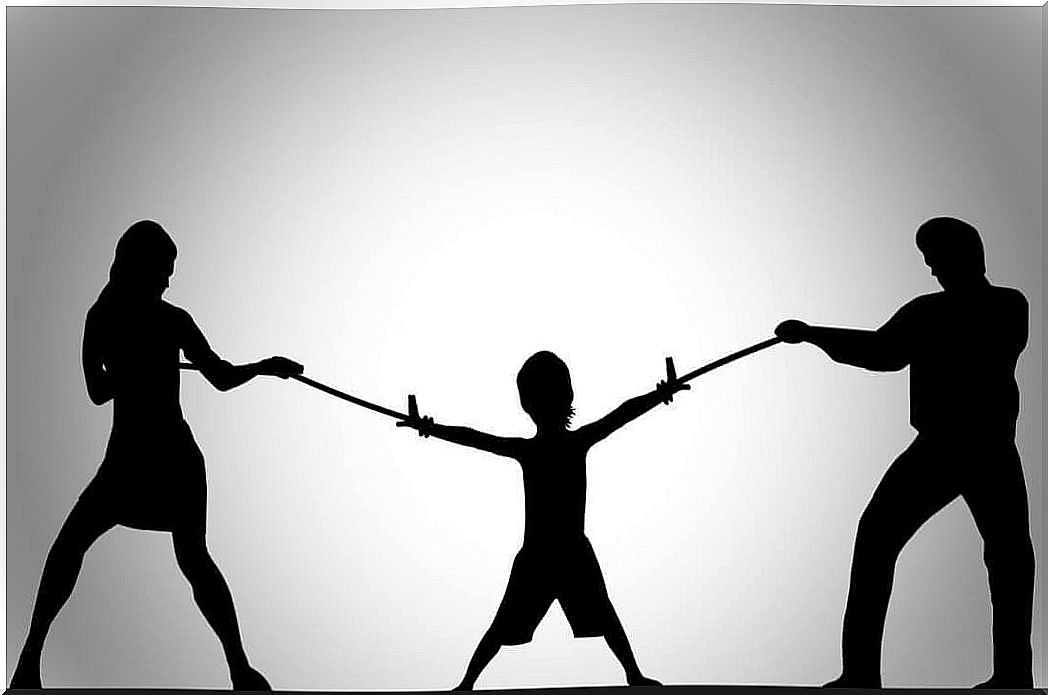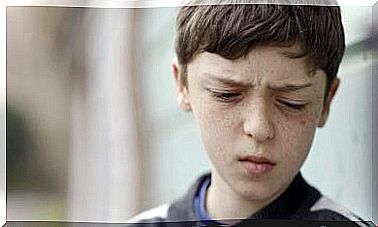What Is Parental Alienation Syndrome?

Divorce or separation of parents is often a traumatic situation for children. The family, which they consider the fundamental nucleus of their life, breaks down without their being able to do anything. A period of sadness and uncertainty will invade them, making them more vulnerable. Situation that some parents take advantage of to use and harm the other, causing Parental Alienation Syndrome.
It seems inconceivable that such a selfish act could ever happen. Unfortunately, hatred and resentment towards the ex-partner is sometimes stronger than sanity. Many parents are not even aware of the damage they do to their offspring by fueling their sense of helplessness. Their own suffering is more important to them than that of their children, which almost always takes a back seat.
Telling a child that their father does not want to see them, telling lies about him or her or insulting the other trying to make the child lose respect for them are just some examples of this kind of manipulation. The psychological consequences that the child will suffer can become problematic, generating a possible pathological hatred towards the father who is a victim of Parental Alienation.
What is Parental Alienation Syndrome?
Parental Alienation Syndrome is a kind of child psychological abuse. It is known as the influence that is exerted on the minds of children so that they modify the perception they have of their other parent.
This situation can happen from one parent to another or it can be used by both to hurt each other. The alienating parents do not hesitate to ridicule the child if it shows feelings for the other person. Many even use the family environment to reinforce that idea of contempt for the father or mother, being grandparents, uncles and friends accomplices of this kind of abuse.

In these cases, it is also quite common to tell the child about the divorce. The intention is to self-victimize so that the child feels sorry for one and blames the other for what he is living. All to carry out a personal revenge in which the most affected is the offspring. He is the real victim and the one who must be kept away from this kind of toxic behavior.
What can lead a parent to behave like this?
The right thing to do before a divorce is to know how to separate the concepts. That the other was a bad partner does not mean that he is a bad father. Although this is not taken into account, for example, in cases where there has been violence towards the spouse. It is logical that having suffered experiences of abuse by an ex-partner generates a horrible fear that history will repeat itself in the little ones.
In all other situations, taking children away from the other parent may be a sign that the separation or divorce is not being handled properly. It denotes selfishness and a great lack of self-esteem, as well as a lack of sensitivity and empathy that will affect your children emotionally.
It may also happen that the alienating parent suffers from some type of personality disorder. Those most closely related to these situations are narcissism and Borderline Personality Disorder, but they tend to be less recurrent.

What can I do if I am a witness or victim of this behavior?
Keep in mind that being accused in court of this kind of child abuse can influence custody. Before threatening the executor of the acts to notify the police or Social Affairs, it is important to speak with him. Make him understand that his way of acting is not adequate and that it is the child who suffers the most.
If the manipulative attitude still persists, a judge must decide what to do. Children often refuse to live with the other parent because of unfounded hatred. Parental Alienation Syndrome is a very delicate problem that most of the time requires psychological attention.
Parental Alienation Syndrome causes devastating effects on children. Anxiety and fear of contact with the other parent can influence their relationship with the other parent , as well as harm their emotional development.
Feeling ridiculed, undervalued, or underestimated for expressing positive feelings toward your other parent also influences your self-esteem. Many will carry these traumas into adulthood, creating an irreconcilable rift between themselves and the affected parent.
As we can see, the Parental Alienation Syndrome deserves special attention. A separation or divorce should not become a psychological battle between those who at some point made the decision to maintain a relationship. Much less, in using the children to cause more damage.
In this situation, it is appropriate to focus on managing the situation in the best possible way to avoid causing more damage, both to oneself and to others. Separating or divorcing is not pleasant, especially when the protagonists of the situation contribute to making the situation worse.









